Benchmarks
To gauge the effectiveness of the Liva Q2 as an everyday PC, we have benchmarked it against one of our entry-level systems comprising a Core i3-7100 CPU and 8GB of RAM. It offers a solid experience in all but graphics.
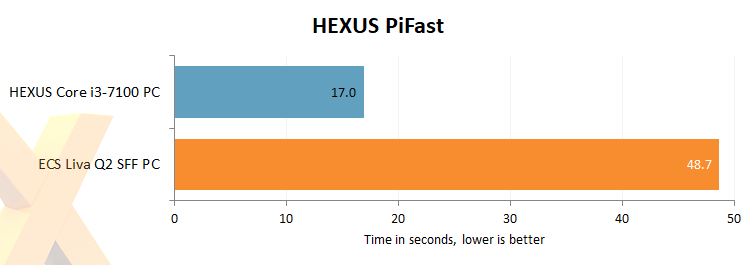
Here is where the top-line Pentium Silver N5000's lack of single-thread muscle is shown. The chip can hit a peak frequency of 2.7GHz, yet the architecture is such that it's clearly lacking in the oomph department. A HEXUS PiFast time of >40 seconds usually denotes a bit of lag and waiting around when opening multiple browser tabs alongside a few applications.
Illustrating this, the Liva Q2 struggles at even updating Windows, often hitting 100 per cent load and rendering the rest of the system largely unresponsive. An update that ought to take 30 minutes takes over two hours here.
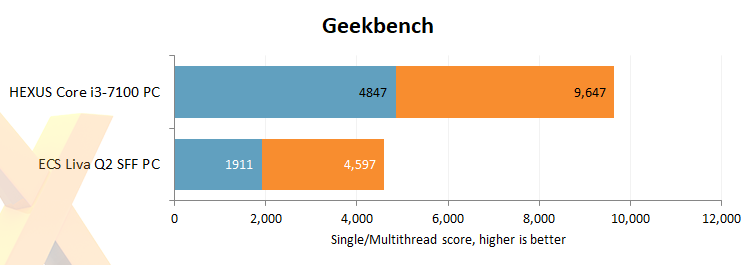
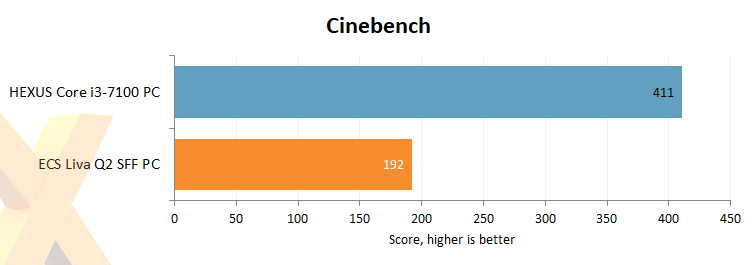
So, what happens if you task all CPU cores? The answer is performance about half that of the Core i3, coming in at the same sort of levels as a Core m3 chip. You wouldn't want to do any heavy rendering on the Liva, of course, but transcoding the odd clip ought not to be a problem.
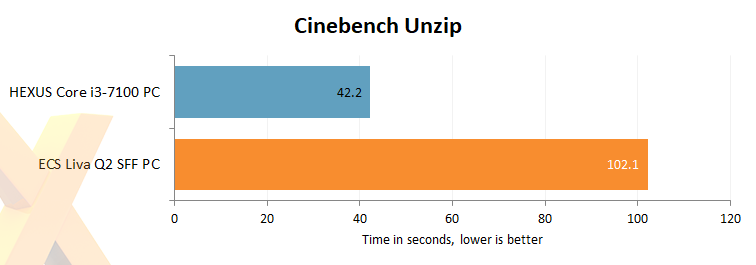
Looking at performance another way, we time how long it takes to unzip the 2,621 files contained within the 103MB Cinebench benchmark file. Mostly CPU-bound, having a fast disk can also help, but Liva's Pentium Silver 5000 struggles against the Core i3... and that extra time is very noticeable.
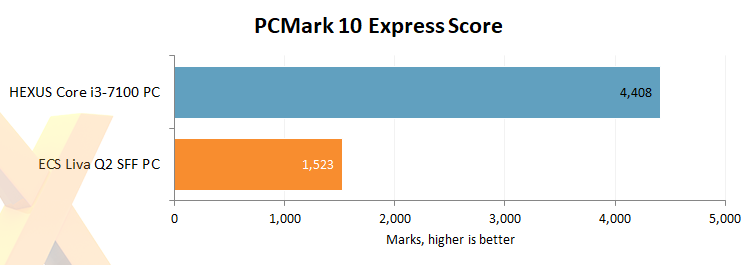
Running the truncated PCMark 10 test also shows there's little scope outside of running email, editing a simple spreadsheet, or browsing the web, where the Q2 is just able to handle multiple tabs without stuttering.
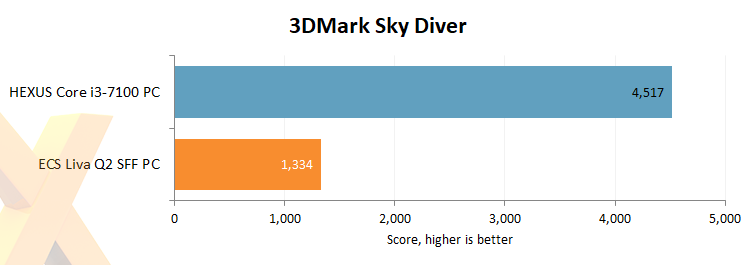
Gaming-wise, it's much of the same; you won't be able to run even the most basic eSports titles.
And that's how we see the Liva, as a basic PC for checking your emails and playing high-res video. The UHD graphics are able to run the desktop at 4K60 and play YouTube 4K trailers just fine. And if you're into Flash-based games such as the horribly addictive 8-pool from Miniclip, Liva Q2's up to the task, even if your cueing isn't.
Remember we mentioned that energy efficiency was one of the stronger points? How about an idle power draw of 4.1W and under-load (Cinebench) of 10.2W. CPU temperature escalates from 41°C to a comfortable 65°C. Fancy having a bunch of these mini PCs in the office? Energy usage won't be a concern.


